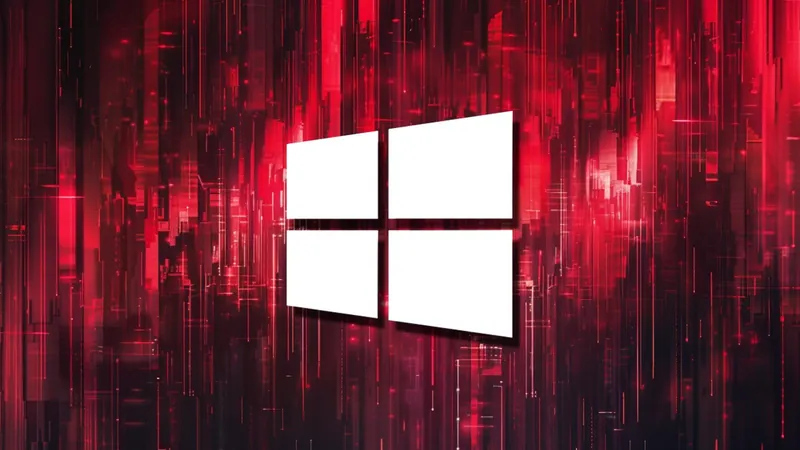
Urgent Warning for Windows 10 Users: Upgrade Now to Avoid Major Security Risks!
2025-01-05
Author: Benjamin
As Windows 10 nears its end of support on October 14, 2025, cybersecurity experts are sounding alarms for users of the aging operating system. ESET, a leading cybersecurity firm, is urging Windows 10 users to consider upgrading to Windows 11 or transitioning to Linux to prevent a potential 'security fiasco.'
Thorsten Urbanski, a security expert at ESET, describes the urgency of the situation: "It's five minutes to twelve to avoid a security fiasco for 2025." He emphasizes that users should not procrastinate the upgrade until the deadline, as sticking with Windows 10 puts them at significant risk of cyber attacks and potential data loss.
Once Microsoft halts free security updates for Windows 10, users will become increasingly vulnerable as new security flaws are discovered without any patches to resolve them. This creates an open window for cybercriminals to exploit systems, leading to severe breaches and malware spreading.
Presently, approximately 32 million computers in Germany run on Windows 10, accounting for around 65% of all household devices. In stark contrast, Windows 11 is only utilized by about 33% of these devices—approximately 16.5 million systems. Global statistics further reflect this trend, with nearly 63% of Windows users worldwide still on Windows 10, while only 34% have made the leap to Windows 11.
However, the gaming community appears to be more proactive in adopting the latest technology; recent data from the Steam Hardware & Software Survey indicates that 54.96% of gamers are using Windows 11, as they frequently upgrade their hardware to retain competitive gaming performance.
Unfortunately, many businesses and everyday users are hesitant to upgrade, often due to the absence of familiar features in Windows 11, performance anxieties, and the mandatory TPM (Trusted Platform Module) requirement. This hardware requirement is crucial and has halted many older computers from upgrading, even if they are functioning well with Windows 10.
Microsoft has firmly stated that the TPM requirement for Windows 11 is "non-negotiable," as it is integral to many security measures, including secure storage of cryptographic keys and credentials, as well as integration with Secure Boot and Windows Hello for Business.
For those unable to upgrade to Windows 11 due to hardware limitations, Microsoft does offer Extended Security Updates (ESU) for businesses; however, these are costly. The pricing plan for ESU can reach up to $427 over three years ($61 for the first year, $122 for the second, and $244 for the third).
The situation is more precarious now than it was when Windows 7 support ended in January 2020. At that time, a mere 20% of users were still on Windows 7, with the majority having already upgraded to Windows 10. Urbanski notes, "Cybercriminals are fully aware of these statistics and are patiently waiting for the end of support for Windows 10 to ramp up their activities."
In addition to the security concerns, users still loyal to Windows 10 should consider the potential consequences of continuing with unsupported software. The risks include facing ransomware attacks, identity theft, and significant financial losses borne from compromised systems.
If you're a Windows 10 user, now is the time to act. Don’t wait for the final countdown—upgrade to Windows 11 or explore Linux alternatives to safeguard your digital life!



 Brasil (PT)
Brasil (PT)
 Canada (EN)
Canada (EN)
 Chile (ES)
Chile (ES)
 Česko (CS)
Česko (CS)
 대한민국 (KO)
대한민국 (KO)
 España (ES)
España (ES)
 France (FR)
France (FR)
 Hong Kong (EN)
Hong Kong (EN)
 Italia (IT)
Italia (IT)
 日本 (JA)
日本 (JA)
 Magyarország (HU)
Magyarország (HU)
 Norge (NO)
Norge (NO)
 Polska (PL)
Polska (PL)
 Schweiz (DE)
Schweiz (DE)
 Singapore (EN)
Singapore (EN)
 Sverige (SV)
Sverige (SV)
 Suomi (FI)
Suomi (FI)
 Türkiye (TR)
Türkiye (TR)
 الإمارات العربية المتحدة (AR)
الإمارات العربية المتحدة (AR)